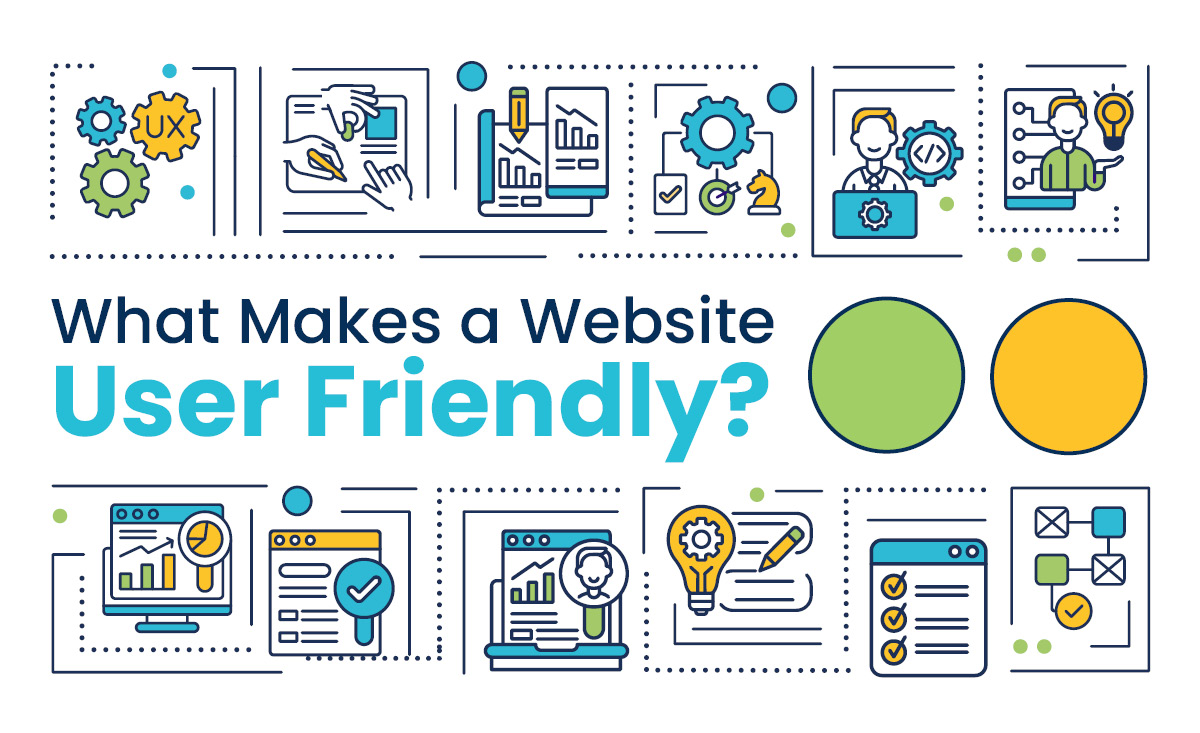
Before you start looking for ways to drive traffic to your website, you should first make sure that it's user friendly.
You may be wondering: what is a user-friendly website? A user-friendly website is one that users can access and navigate with ease, regardless of which web browser they're using and whether they're viewing the site on a PC or a mobile device.
Good usability makes users more likely to do what you want them to (e.g. place an order or join your mailing list). User-friendly sites also tend to rank higher on Google and other search engines.
So, what makes a user-friendly website? There are many different factors that help to make a website user friendly. Here are some of the most important parts of a user-friendly website:
- Responsive design
- Accessibility
- Loading times
- Mobile usability
Why does my website need a responsive design?
A responsive website is one that presents its content effectively on any screen, regardless of dimensions.
Responsive web pages literally 'respond' to the device on which you view them - making them equally easy to engage with whether you're using a laptop, a mobile phone, or even a smart TV!
Google recommends responsive web design as a best practice. Not only is a responsive website more user friendly, it's also the right choice for SEO; responsive websites are easier for Googlebot to crawl, which helps Google to index more of your site’s content, improving your chances of ranking highly on the search engine results page.
Responsive design also makes it easier to acquire backlinks, as users can share and link to your content with a single URL.
How can I make my website accessible to all?
When you create a user-friendly website, you are ensuring that all users - including those with disabilities - can enjoy a good browsing experience and make full use of your site's content.
If you're wondering what makes a user friendly website, and what makes it accessible, consider implementing...
- Text-to-speech options for those with limited vision
- Speech recognition to allow those with limited mobility to control the computer using their voice
- Accessible design features such as large, easy-to-read fonts and optional colour contrast
- Alt text for images to provide an accurate description for those with limited vision
For more guidance and best practices, check out the Web Content Accessibility Guidelines.
How can I make sure my website loads quickly?
Loading times matter. If your site takes more than 3 seconds to load, you'll lose up to 53% of your users.
This just goes to show how short a user’s attention span can be these days. It’s important to minimise your loading times if you want to maximise user engagement - here are a few ways to achieve this:
- Analyse and fix any slow website content
- Clean up any unnecessary code
- Compress large files
- Test your website’s loading speed frequently
When you have a user-friendly website, it's all about making it easy for your user to navigate your website, and it’s essential that your website doesn’t fall at the first hurdle and turn users off before the first page has even loaded!
You can check your website’s loading speed here.
Does my website need to be mobile friendly?
A recent report showed that 92.1% of web users access the Internet using a mobile phone. Not only does this show just how many people rely on their mobile devices nowadays, it also shows how important mobile friendliness is for website visibility and traffic.
In this day and age, optimising your website for mobile has become more than necessary. To improve your website’s mobile compatibility, the best place to start is by checking how your website currently looks on a mobile device.
You can easily do this using Google’s handy mobile site tester. If your website is difficult to use on mobile, then you’re potentially driving away valuable traffic. Poor mobile usability can also harm your organic search rankings.
To improve your website’s mobile compatibility, see our previous blog post on Mobile User Experience & How to Get it Right on Your Website.
Do you need a responsive website?
At Designer Websites, we specialise in creating bespoke, responsive websites that are specifically tailored to each client and their unique business requirements.
Contact us now to request a free, no-obligation web design quote!
Request a Quote